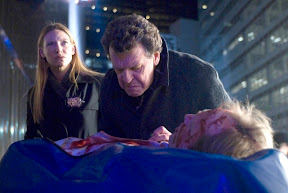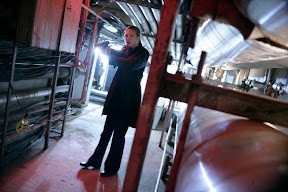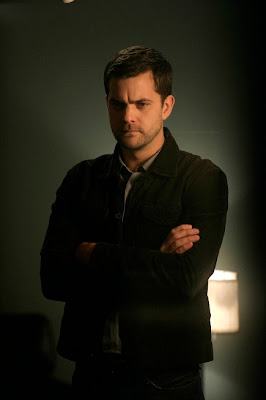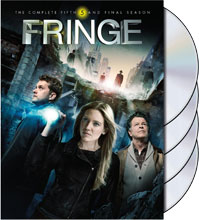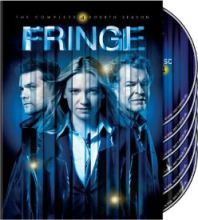
If you are new to Fringe or just now deciding to truly delve into it, you are in the right place. On Tuesdays we hold a
live discussion and
easter egg hunt, both starting at 9:00 p.m. Eastern. The article page for tonight's episode of Fringe over at
Fringepedia also unlocks at 9/8c.
Before and after Tuesday night, we have
news and
spoilers, a
gallery and a
forum. In fact, you could say Fringe Television is an all-inclusive fan site. Yup, you could say that.
But back to tonight's episode. What are you looking for beyond the usual?
Well, you want to keep an eye out for
The Observer. He is a cryptic fellow who we don't know much about, but one thing is for sure, he makes an appearance in each episode.
Second thing to watch for is the
next episode clue. By the way, the next episode is entitled
The Dreamscape. If you want more to go on than that, and don't mind spoilers, see
Fringe Spoilers.
Third, any and all reference to
Massive Dynamic. Like The Observer, it's all but guaranteed
MD is everywhere, including in every episode of Fringe.
While that's it for the solid leads (the stuff we know to look for and why), there are plenty more random curiosities in every episode and this from
Jeff Pinkner:
There’s Easter eggs all over the place. Many of them are just for the fun of people who want to play along. Several of them have yet to be discovered.
So you see. It's far from too late to start down the rabbit hole. Happy hunting.
 We recently had the opportunity to talk with Chance Kelly, who plays rogue FBI Agent Mitchell Loeb on Fringe. Chance was on the set, filming the episode we will see after the break - Bound on January 20th. He discussed what it's like to work on Fringe, and gave some interesting insight into his character - that maybe his character might end up being a good guy, and the reason for shooting Joanne Ostler:
We recently had the opportunity to talk with Chance Kelly, who plays rogue FBI Agent Mitchell Loeb on Fringe. Chance was on the set, filming the episode we will see after the break - Bound on January 20th. He discussed what it's like to work on Fringe, and gave some interesting insight into his character - that maybe his character might end up being a good guy, and the reason for shooting Joanne Ostler:










